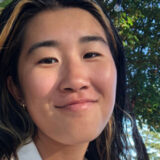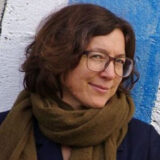Pauline Tesler
Pauline, the founding director of the Integrative Law Institute, began her legal career at the National Center for Youth Law conducting class actions, major impact litigation and test case appeals on behalf of indigent women and children, in cases that challenged coercive use of drug therapies in public schools for children with ADHD, foster-care policies that disregarded children’s bonds with parent figures, and incarceration of juvenile offenders without either due process or treatment. Pauline and her colleagues won a groundbreaking case before the California Supreme Court striking down restrictions on poor women’s access to abortions because they violated women’s privacy rights under the California Constitution. This legal victory resulted in California extending to this day an uninterrupted range of reproductive choices for women regardless of age or economic status. In the early 1980’s Pauline started her own private practice as a family lawyer, using it as a platform for change agent work to revitalize the legal profession. A longtime California “Superlawyer” who is included in “Best Lawyers in America,” and a fellow of the select American Academy of Matrimonial Lawyers, Pauline has published two books, Collaborative Law: Achieving Effective Resolution In Divorce Without Litigation, and Collaborative Divorce: the Revolutionary New Way to Restructure Your Family, Resolve Legal Issues, and Move On with Your Life, as well as many journal articles and book chapters all aimed at transforming how lawyers understand the human meaning of the work they do. Her workshops and writings catalyzed an international movement called “Collaborative Law” that is changing the face of family law in 28 nations. In recognition for that work, she received the first “Lawyer as Problem Solver” award from the American Bar Association in 2002.
In 2008, Pauline began teaching a groundbreaking course she developed with psychiatrist Thomas B. Lewis, M.D. (author of A General Theory of Love), entitled “Law and the Human Brain: NeuroLiteracy for Lawyers, Mediators, and Judicial Officers,” at conferences and by invitation from law schools, bar associations and other lawyer organizations. This work was the genesis for the Integrative Law Institute at Commonweal, whose mission is reclaiming law as a healing profession.





